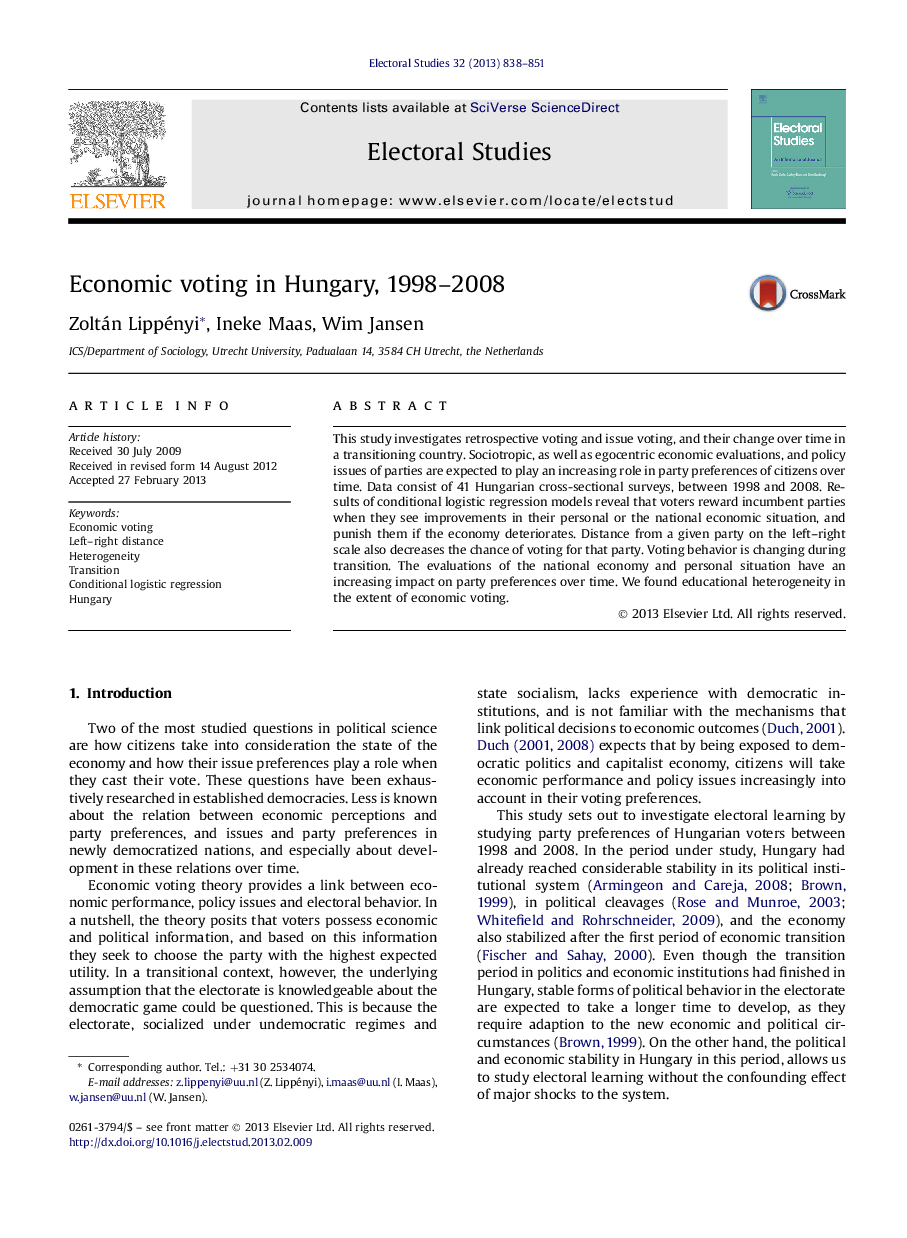| کد مقاله | کد نشریه | سال انتشار | مقاله انگلیسی | نسخه تمام متن |
|---|---|---|---|---|
| 1051757 | 946356 | 2013 | 14 صفحه PDF | دانلود رایگان |

This study investigates retrospective voting and issue voting, and their change over time in a transitioning country. Sociotropic, as well as egocentric economic evaluations, and policy issues of parties are expected to play an increasing role in party preferences of citizens over time. Data consist of 41 Hungarian cross-sectional surveys, between 1998 and 2008. Results of conditional logistic regression models reveal that voters reward incumbent parties when they see improvements in their personal or the national economic situation, and punish them if the economy deteriorates. Distance from a given party on the left–right scale also decreases the chance of voting for that party. Voting behavior is changing during transition. The evaluations of the national economy and personal situation have an increasing impact on party preferences over time. We found educational heterogeneity in the extent of economic voting.
► We found Hungarian voters engaging both in retrospective and policy-oriented voting.
► Economic evaluations have an increasing impact on party preferences over time.
► Policy-oriented voting does not increase during transition.
► Large educational heterogeneity in economic voting exists in Hungary.
Journal: Electoral Studies - Volume 32, Issue 4, December 2013, Pages 838–851